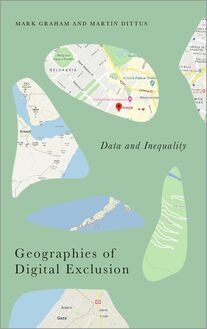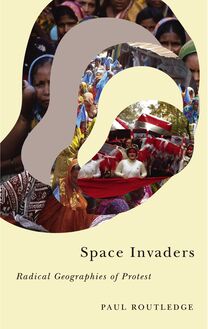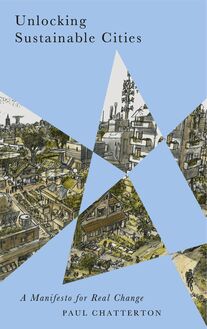Space Invaders , livre ebook
132
pages
English
Ebooks
2017
Vous pourrez modifier la taille du texte de cet ouvrage
Obtenez un accès à la bibliothèque pour le consulter en ligne En savoir plus
Découvre YouScribe et accède à tout notre catalogue !
Découvre YouScribe et accède à tout notre catalogue !
132
pages
English
Ebooks
2017
Vous pourrez modifier la taille du texte de cet ouvrage
Obtenez un accès à la bibliothèque pour le consulter en ligne En savoir plus
Publié par
Date de parution
20 juillet 2017
Nombre de lectures
1
EAN13
9781786801111
Langue
English
Whether it be the alter-globalisation mobilisations of the turn of the century, the flurry of Occupy protests, or the current wave of anti-austerity mobilisations taking place, there is a geographical logic to all forms of protest whether that be through transforming landscapes, occupying enemy territory or developing solidarity and communication networks.
Paul Routledge takes a primarily auto-ethnographical perspective, drawing upon his extensive experience over the past thirty years working with various forms of protest in Europe, Asia and Latin America, to provide an account of how a radical geographical imagination can inform our understanding and the prosecution of protest.
List of Figures
Acknowledgements
Series Preface
1. Radical Geographies of Protest: Spatial Strategies, Sites of Intervention and Scholar Activism
2. Know Your Place: Barricades, Rooftops and Being Steadfast
3. Make Some Space: Camps, Commons and Occupations
4. Stay Mobile: Packs and Swarms, Flash Mobs and Hacktivism
5. Wage Wars of Words: Testimonies, Communiqués and Culture Jamming
6. Extend Your Reach: Convergences, Conferences and Caravans
7. Feel Out of Place: Ethical Spectacles, Zaps and Guerrilla Performances
8. Space Invaders: Power, Politics and Protest
Notes
Index
Space Invaders
Radical Geography
Series Editors:
Kate Derickson, Danny Dorling and Jenny Pickerill
Also available:
In Their Place
The Imagined Geographies of Poverty
Stephen Crossley
Space Invaders
Radical Geographies of Protest
Paul Routledge
First published 2017 by Pluto Press
345 Archway Road, London N6 5AA
www.plutobooks.com
Copyright Paul Routledge 2017
The right of Paul Routledge to be identified as the author of this work has been asserted by him in accordance with the Copyright, Designs and Patents Act 1988.
British Library Cataloguing in Publication Data
A catalogue record for this book is available from the British Library
ISBN 978 0 7453 3629 9 Hardback
ISBN 978 0 7453 3624 4 Paperback
ISBN 978 1 7868 0110 4 PDF eBook
ISBN 978 1 7868 0112 8 Kindle eBook
ISBN 978 1 7868 0111 1 EPUB eBook
This book is printed on paper suitable for recycling and made from fully managed and sustained forest sources. Logging, pulping and manufacturing processes are expected to conform to the environmental standards of the country of origin.
Typeset by Stanford DTP Services, Northampton, England
Simultaneously printed in the United Kingdom and United States of America
Contents
List of Figures
Acknowledgements
Series Preface
1 Radical Geographies of Protest: Spatial Strategies, Sites of Intervention and Scholar Activism
2 Know Your Place: Barricades, Rooftops and Being Steadfast
3 Make Some Space: Camps, Commons and Occupations
4 Stay Mobile: Packs and Swarms, Flash Mobs and Hacktivism
5 Wage Wars of Words: Testimonies, Communiqu s and Culture Jamming
6 Extend Your Reach: Convergences, Conferences and Caravans
7 Feel Out Of Place: Ethical Spectacles, Zaps and Guerrilla Performances
8 Space Invaders: Power, Politics and Protest
Notes
Index
Figures
1.1 Scholar activism involving activists from the Assembly of the Poor, Chiang Mai, Thailand, 2004
2.1 Know your place: women blow conch shells to alert villagers, Baliapal, India, 1989
3.1 Make some space: Carhenge, Pollok Free State, Glasgow, 1994
4.1 Stay mobile: climate justice activists swarm the streets of Paris, 2015
5.1 Wage wars of words: Narmada Bachao Andolan poster critiquing the dams, Narmada Valley, India, 2000
6.1 Extend your reach: peasant activists from Bangladesh, India, Nepal and Pakistan lead a Climate Caravan demonstration in Dhaka, Bangladesh, 2011
7.1 Feel out of place: the Clandestine Insurgent Rebel Clown Army, Faslane submarine base, Scotland, July 2005
8.1 Site of decision, circulation and potential: climate justice people s assembly outside the United Nations Framework Convention on Climate Change meeting, Copenhagen, Denmark, 2009
Acknowledgements
This book is the product of a host of relationships, collaborations and inspirations over the past 30 years. It would not have been possible without the love and support of Teresa Flavin, the keen eye of Dave Featherstone, the pleasures of collaboration with Andy Cumbers and Kate Derickson, the strange beauty of Pollok Free State, the word power of Narmada Bachao Andolan, the internationalism of People s Global Action, the direct action of the Bangladesh Krishok Federation, the joyous rebellion of the Clown Army and the creativity of Climate Games. I also want to thank my editors and my once and present colleagues in geography at the Universities of Glasgow and Leeds for the many discussions, comments and reflections that have improved my work over the years.
Series Preface
The Radical Geography series consists of accessible books which use geographical perspectives to understand issues of social and political concern. These short books include critiques of existing government policies and alternatives to staid ways of thinking about our societies. They feature stories of radical social and political activism, guides to achieving change, and arguments about why we need to think differently on many contemporary issues if we are to live better together on this planet.
A geographical perspective involves seeing the connections within and between places, as well as considering the role of space and scale to develop a new and better understanding of current problems. Written largely by academic geographers, books in the series deliberately target issues of political, environmental and social concern. The series showcases clear explications of geographical approaches to social problems, and it has a particular interest in action currently being undertaken to achieve positive change that is radical, achievable, real and relevant.
The target audience ranges from undergraduates to experienced scholars, as well as from activists to conventional policy-makers, but these books are also for people interested in the world who do not already have a radical outlook and who want to be engaged and informed by a short, well written and thought-provoking book.
Kate Derickson, Danny Dorling and Jenny Pickerill Series Editors
1
Radical Geographies of Protest
Spatial Strategies, Sites of Intervention and Scholar Activism
Protestors are space invaders. In the course of protests, all kinds of spaces - such as homes, corporate offices, streets and factories - are used, occupied, defended and abandoned. Particular places provide protestors with opportunities and constraints as they wage their struggles. Places can influence the character of protests as well as being transformed by them. Protestors make space, and in so doing they can imbue places with different meanings and feelings. In short, protest always has a geographical character and this has implications for the emergence, character, impact and outcomes of particular struggles.
Protests form part of a broader set of interactions, repertoires and processes that are termed contentious politics , which can include strike waves, revolutions, armed conflict, civil wars, guerrilla insurgencies and democratic processes involving political actors and governments. 1 Protests are prosecuted by a spectrum of different societal actors including individuals, groups and, of particular interest to this book, social movements - that is, organisations of varying size that share a collective identity and solidarity, are engaged in forms of conflict in opposition to an adversary (such as a government or corporation), and attempt to challenge or transform particular elements within a social system (such as governments, laws, policies, cultural codes and so on). 2
Whether it be the alter-globalisation mobilisations of the turn of the century, the flurry of Occupy protests that peppered the planet a few years ago, the recent wave of anti-austerity mobilisations or ongoing protests against the construction of dams or the spread of agribusiness, there is a geographical logic to all forms of protest. Through a discussion of different case studies, I will explain how an understanding of radical geography - an approach to geography that is motivated by concerns for social and environmental justice within a global capitalist economy - enables us to make sense of protests around the world, and provides a series of geographical strategies of use to protestors.
This book will consider two distinct yet interrelated geographical logics that are critical in overall strategic approaches to the prosecution of protest: a primary logic of spatial strategies , by which the character of protest is informed by, and shapes, the geographical contexts in which it takes place; and a secondary logic concerning key sites of intervention , physical and conceptual targets within a system that are directly related to a protest s concerns, goals or broader strategies. Taken together, these logics provide an innovative approach to protest that enables us to understand why such mobilisations occur where they do, and provides useful insights for students and activists wishing to make sense of the world of protest and build effective campaigns.
In this chapter I will discuss what is meant by geography, and in particular, radical geography and the contributions that it has made to social movement theory. I will also consider the practice of scholar activism, and issues of ethics and representation concerning collaborating with and writing about political struggles. Following a discussion of politics, protest and power, I will introduce six spatial strategies and nine sites of intervention that I use to interpret political protest from a radical geographical perspective.
GEOGRAPHY AND THE RADICAL IMAGINATION
Human geography is concerned with the people and places that make up the world, their similarities and differences, their connections (or lack thereof) and the processes by which our world is structured into identifiable places and peoples. Two key geographical concepts used throughout this book are place and space. Place refers to a particular geographical locale distinguished by the cultural or subjective meanings through which it is constructed and differentiated (from other locales). These meanings can change over time, and places are always connected to other locales regionally, nationally and internationally through flows of people, investment, ideas, products and so on. Space refers to the ongoing flows, forms and social relations of the world in which we find ourselves. Space is never static, but rather plural, multiple and subject to transformation. 3
At root is the recognition that everything happens somewhere, and that, for geographers, this is important. For example, where we are in the world is fundamental to what we see (or do not see), what problems we face, what languages we speak and think in, what we do, what chances we have in life, who we interact with and so on. In the language of human geography, we say that human and non-human things exist in and through space: in very mundane ways, all of us live in homes that organise the world into private and public realms; we live in settlements that we name and categorise by whethe







